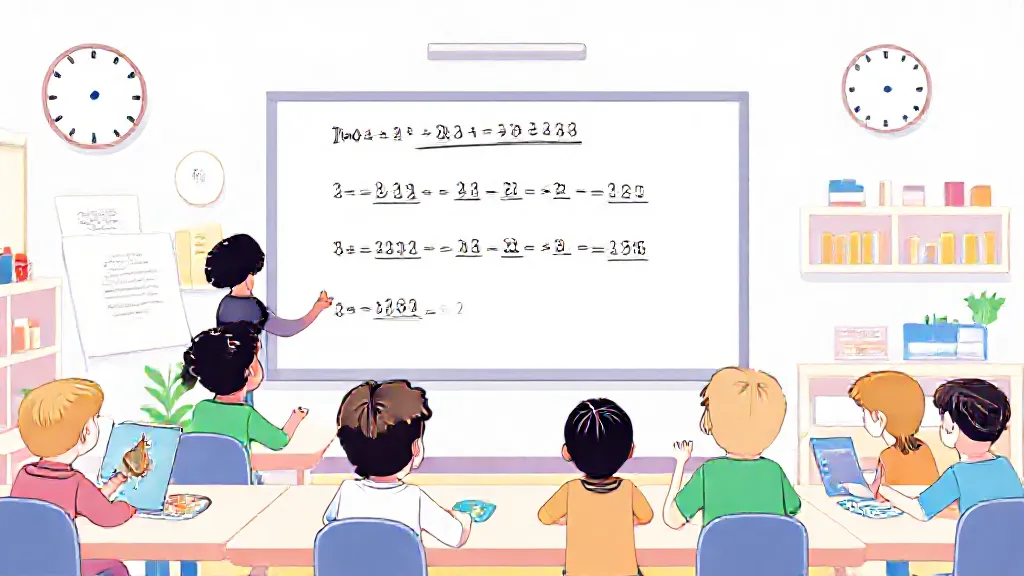Learning math can be a daunting task for many beginners, but understanding the basics is crucial for building a solid foundation. This article explores essential concepts and strategies that can help anyone, regardless of age or background, to master mathematical skills. From number sense to problem-solving techniques, we will cover the fundamental components of learning math effectively.
Understanding Number Sense
Number sense is the ability to understand and manipulate numbers. It involves recognizing the relationships between numbers, understanding their magnitude, and being able to perform basic operations such as addition, subtraction, multiplication, and division. For beginners, developing number sense can be achieved through practical experiences, such as counting objects, using number lines, or playing math-related games.
These activities help to create a more intuitive understanding of numbers and their properties.
The Importance of Basic Operations
Basic operations are the building blocks of mathematics. Mastery of addition, subtraction, multiplication, and division is essential for progressing to more complex concepts.
Beginners should practice these operations in various contexts, such as word problems or real-life situations. For example, calculating the total cost of items while shopping can reinforce addition and subtraction skills. Incorporating visual aids, like manipulatives or diagrams, can also enhance comprehension and retention.
Exploring Fractions and Decimals
Once a solid grasp of basic operations is established, beginners can move on to fractions and decimals. Understanding fractions involves recognizing parts of a whole and how to compare and manipulate them. Activities such as slicing a pizza or dividing a cake can make learning about fractions more relatable.
Decimals, on the other hand, are often introduced in conjunction with fractions, emphasizing their use in measurement and currency. Familiarizing oneself with converting between fractions and decimals is vital for advancing in mathematics.
The Role of Geometry in Math Learning
Geometry introduces learners to shapes, sizes, and the properties of space.
Understanding geometric concepts is not only crucial for math but also for real-world applications such as architecture and engineering. Beginners can explore geometry through hands-on activities, such as building models or drawing shapes. Learning about angles, perimeter, area, and volume lays the groundwork for more advanced topics in mathematics.
Developing Problem-Solving Skills
Problem-solving is a critical aspect of mathematics that encourages logical thinking and reasoning. Beginners should be encouraged to approach problems systematically, breaking them down into manageable parts. Techniques such as drawing diagrams, creating tables, or using guess-and-check methods can aid in finding solutions.
Moreover, discussing different strategies with peers or mentors can foster collaborative learning and enhance problem-solving abilities.
The Importance of Practice and Persistence
Like any skill, proficiency in math requires consistent practice and perseverance. Beginners should engage in regular math exercises, whether through worksheets, online platforms, or interactive games.
Setting achievable goals and tracking progress can motivate learners to continue improving. It is essential to cultivate a growth mindset, where challenges are viewed as opportunities for learning rather than obstacles.
Utilizing Resources for Effective Learning
Numerous resources are available to support beginners in their math journey.
Online tutorials, educational apps, and math clubs can provide additional practice and guidance. Libraries and educational websites offer a wealth of information and exercises tailored to different skill levels. Seeking help from teachers, tutors, or peers can also make a significant difference in understanding complex concepts.
Building Confidence in Math
Lastly, developing confidence in math is vital for beginners. Many individuals struggle with math anxiety, which can hinder their learning experience. Encouraging a positive attitude towards math, celebrating small victories, and fostering a supportive learning environment can help alleviate these fears.
As learners become more comfortable with mathematical concepts, they will be more likely to tackle challenging problems and pursue advanced studies in the subject.
In conclusion, the basics of learning math for beginners encompass a wide range of concepts and strategies. By focusing on number sense, basic operations, fractions, geometry, problem-solving, and utilizing available resources, anyone can develop a strong foundation in mathematics.
With practice and persistence, beginners can not only improve their math skills but also gain confidence in their abilities, paving the way for future success in the subject.
